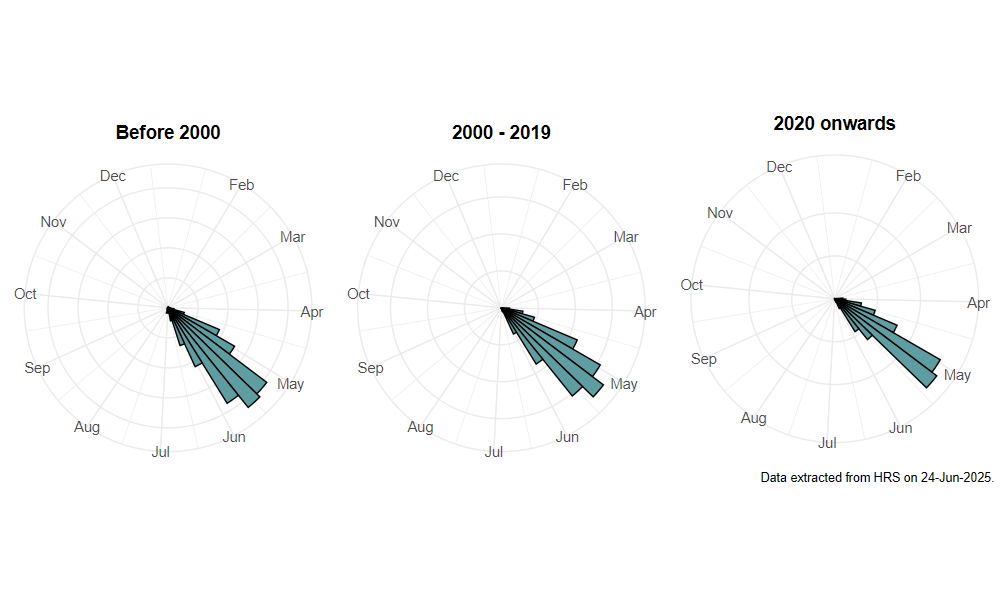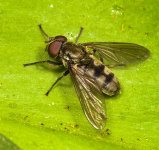Portevinia maculata (Fallén, 1817)
Identification
Identification difficulty = 1. ![]()
![]() according to Ball & Morris, 20241
according to Ball & Morris, 20241
Synonymy
Cheilosia maculata Fallén in Coe(1953)2.
Biology
The larva tunnels in the bulbs of Ramsons Allium ursinum. During its short flight period, males are often abundant around stands of the larval food plant, where they can be seen visiting the flowers and resting on the foliage. Females generally fly low down amongst the plants and are more difficult to find.
Flight period
The following plots show the number of unique records per week excluding those reported to be of immature stages.

Distribution
Although very widely distributed, this species is most frequently found in more heavily wooded regions. Current data suggest that cooler regions are preferred and the comparative lack of records from the south and east where recorder effort is highest may be indicative of this. Woodlands in the Pennines and southern Scotland are exceptionally suitable.

Trends
The following plots show the Frescalo TFactor vs year and a map of the rescaled frequency (all records) for the species.
